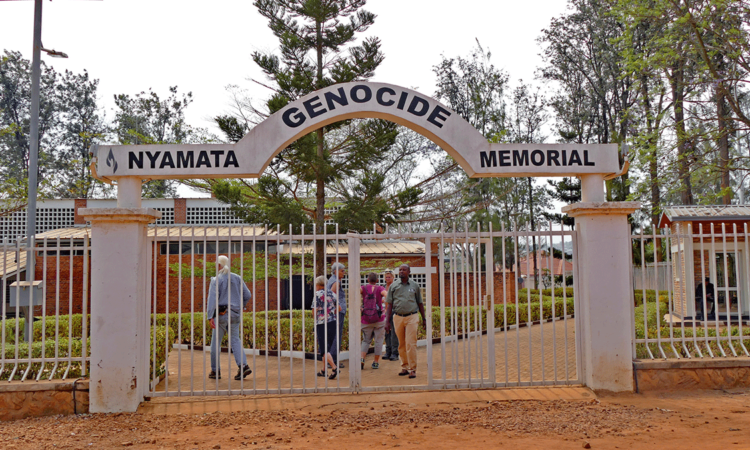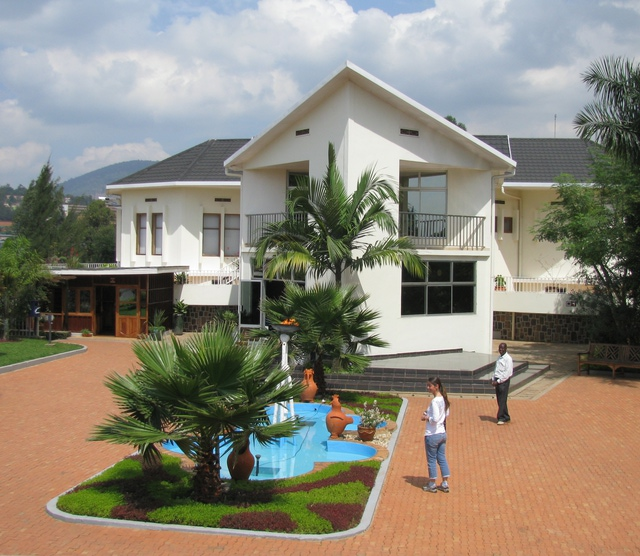Rwanda’s Genocide Memorial Centers: A Journey Through History And Remembrance : Rwanda has a dark history, one that is deeply rooted in the genocide of 1994. This tragic event left a lasting impression on the nation, and many memorial centers have been built to commemorate it. In this blog post, we will explore some of Rwanda’s most significant memorial centers and learn about their importance in preserving the memory of this horrific event. We will also discuss how these memorials can help to bring healing and peace to those affected by the genocide and its aftermath. Join us as we take a journey through history and remembrance at Rwanda’s Genocide Memorial Centers.

Genocide is defined as the deliberate and systematic destruction of a racial, political, or cultural group. It is a crime against humanity that has been occurring for centuries and has caused immense suffering across the world. Rwanda’s genocide memorial centers are important sites of remembrance for victims of this terrible crime. Visiting these centers allows us to gain an understanding of the atrocities that occurred in Rwanda, as well as to honor and remember those who were killed. Gisozi, Murambi, Nyamata, Bisesero, and Ntarama are some of the most significant genocide memorial centers in Rwanda that visitors can visit to gain insight into this tragic event.
The Gisozi Memorial Center is a place of reflection and mourning for the victims of the Rwandan genocide. It is located in Kigali, Rwanda and serves as a reminder of the atrocities that occurred during this time. The memorial center was built in 2004 to commemorate the victims of the genocide and to provide a space for survivors to reflect on their experiences. Visitors can explore interactive exhibits, listen to audio recordings, watch films, and learn more about Rwanda’s history. The Gisozi Memorial Center also serves as an educational resource for those who wish to learn more about this dark period in Rwanda’s history. Gisozi Memorial center is located next to the Catholic Church of Rwanda, a reminder that the struggle for peace and justice is far from over.The Gisozi Memorial Center is a place of reflection and mourning for the victims of the Rwandan genocide. It is located in Kigali, Rwanda and serves as a reminder of the atrocities that occurred during this time.

The Murambi Genocide Memorial Center is a place of remembrance dedicated to the victims of the 1994 genocide in Rwanda. It serves as an important reminder of the tragedy that occurred in this small African country, and pays tribute to those who lost their lives during this horrific event. The center also serves as a place for education and healing, providing visitors with an opportunity to learn more about the history of the genocide and its aftermath. The memorial is located at the site of the Murambi massacre, where more than 8,000 people were killed in one day. It is a powerful reminder that such atrocities should never be forgotten or repeated.
The Nyamata Genocide Memorial Center is a powerful reminder of the tragedy that Rwanda experienced in 1994. It serves as a memorial to the victims of the Nyamata massacre site and provides an opportunity to remember and reflect on the events that took place there. The center contains artifacts from the time, including clothing, photographs, and personal items from those who were killed. It also includes educational materials about genocide prevention for visitors to learn more about this tragic event. The memorial center is a powerful reminder of the past, but it also serves as an important tool for teaching future generations about genocide prevention. Nyamata memorial center is located just outside of Kigali, Rwanda.
The Bisesero Genocide Memorial Center is a tribute to the brave individuals who fought back against the genocide in Rwanda in 1994. The center serves as a reminder of the courage and resilience of those who stood up against oppression and violence. It also provides visitors with an opportunity to learn more about the history of this tragic event, as well as its aftermath. Through interactive exhibits, educational programs, and special events, the center strives to create a meaningful experience for all visitors. By paying tribute to those who fought back during one of the most horrific genocides in modern history, this memorial center serves as a reminder that we must never forget our past and strive for justice in our future. This memorial center is located in the former Bisesero Prison, which was built in the 1950s to house political prisoners and those accused of crimes against the state.


